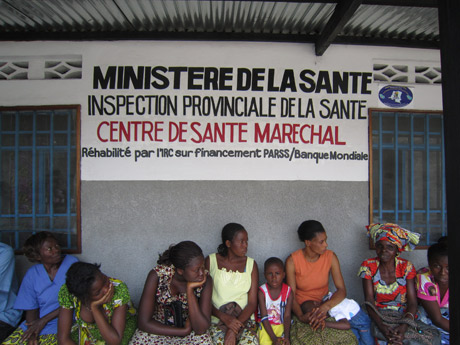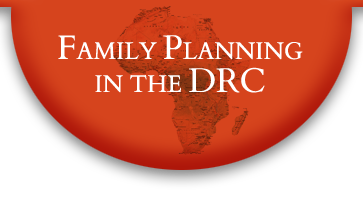Service Delivery
 DRC’s health service delivery involves diverse players: the government,
which is expected to play a leadership role, works closely
with and depends heavily on other players, such as non-governmental
organizations (NGOs), faith-based organizations (FBO), private
for-profit organizations, and other private voluntary
organizations (PVO). Multiple sectors contribute to the
delivery of health services, including family planning
services. Service delivery for family planning includes
multiple types of facilities and outlets.
DRC’s health service delivery involves diverse players: the government,
which is expected to play a leadership role, works closely
with and depends heavily on other players, such as non-governmental
organizations (NGOs), faith-based organizations (FBO), private
for-profit organizations, and other private voluntary
organizations (PVO). Multiple sectors contribute to the
delivery of health services, including family planning
services. Service delivery for family planning includes
multiple types of facilities and outlets.
Clinical facilities include hospitals, health centers, antenatal clinics, and health posts operated both by the government and by private voluntary organizations (PVOs) and non-governmental organizations (NGOs). The health sector has stratified its facilities by level of technical capacity (primary, secondary, tertiary) and ownership (governmental, private). The level of a health facility defines the range of services that can be provided at that location. Primary care facilities include health centers, or health posts, and drug stores. Like commercial pharmacies, these drug stores sell a variety of products including commercial or subsidized products. Non-clinical facilities include private pharmacies selling commercial or subsidized products, community-based distributors, and illegal vendors. Depending on the project and tasks assigned, community-based distributors may also be called relais communautaire (community outreach workers).
Many district hospitals, and even tertiary institutions, play the role of general reference hospital for the health zones in which they are located. Moreover, in some areas, health facilities owned and/or operated by commercial firms (such as the mining companies) find themselves providing most of their medical services to the general population. Hospitals are expected to deliver family planning as part of the responsibilities of their OB-GYN Unit. In addition to reversible contraceptives, hospitals may also provide surgical methods. Tubal ligation is routinely practiced, but primarily for medical reasons, not as a “contraceptive choice” by users. Vasectomy is often mentioned as part of the method mix, but in fact is rarely practiced in DRC.
In spite of government regulations requiring prescriptions, many medications, including contraceptives, are also sold without a prescription at pharmacies, outside official channels in the locals markets and by street vendors. Health centers are expected to deliver family planning as an essential part of the Minimum Package of Activities (MPA). Ideally, FP providers conduct a physical examination, counsel regarding different contraceptive options, prescribe and provide a contraceptive method, give information on follow-up and on what to do in case of problems.
CLASSIFICATION OF SERVICE DELIVERY FACILITIES, BY OWNERSHIP AND LEVEL
The following table is a simplified classification of DRC’s health facilities.
| Level Classification for Service Delivery Facilities | |||
|---|---|---|---|
| Owner | Primary | Intermediate/Secondary | Tertiary |
| Government |
Community-Based Outlets
Drug Stores Officines Mobile Clinics Health Posts Health Centers Maternities General Reference Hospital |
Regional Hospitals | Institutes:
|
Private:
|
Community-Based Outlets
|
Regional Hospitals | Not Applicable |
Private:
|
Drug Stores
|
Clinics
|
Not Applicable |
